Fatherhood and the Language of Sports
Father’s Day, for me these days, is a shade more blue than light.
Sure, “Daddy” is the title I wear with the greatest pride: The oft-spoken, unqualified love that I share with my daughters is powerfully sustaining. Plus, the breakfasts in bed, the thoughtful gifts (this year, a framed portrait of the 2012 Cats!), and the atypical remote control control — fixed faithfully on the U.S. Open’s final round — all make the third Sunday in June a treasured delight.
But for a little more than a decade, these simple joys have been tempered by the melancholy of not having my own daddy to call or treat or spoil.
Bob Miller had been born into the Silent Generation; Americans too young to save us from the Axis evil, too old to play New Age agitator. Silence, in fact, was his trademark: A brilliant lawyer who wrote the powerful words that others delivered: often his litigator partners, on occasion his political champions. My dad was also, famously, perpetually lost in thought: an all-consuming inner debate, an hourly wrestling match between intellect and emotion. He’d break the silence on rare occasion to brag insufferably about his kids, or to lament injustices large and small that he had dedicated his life to combating.
But the one subject that always seemed to animate him the most — especially around the son who worshipped him — was sports. The Cats and the Reds, Borg versus McEnroe, Secretariat, Affirmed and Seattle Slew — sports was his great escape, his release from the stress of a turbo-charged brain that rarely permitted him to relax. That’s why the news junkie and classical music lover always had Cawood or Marty and Joe broadcasting into his car on game night. (I picture my dad today furiously switching the channels between NPR and KSR.)
It’s no wonder that many of my deeply-textured, Kodachrome-quality childhood memories involve me and my dad at a ballgame: Dad brandishing my handmade sign at Game 1 of the 1976 World Series, even after our realization that we were sitting at the very top row of Riverfront Stadium. Dad furiously rubbing my feet so that I could regain feeling after suffering through the Bengals’ 1982 “Freezer Bowl” AFC championship victory. Dad hesitantly grabbing my arm for balance at our last game together, Tayshaun’s magical 5 for 5 three-point run in 2001 against the Tar Heels.
Sports always gave this father and son something to talk about, a common aspiration. Even when his work distractions mounted unbearably, even when my adolescent hormones raged insufferably — when he was too stressed to talk about the law; when I was too embarrassed to talk about girls — we always had the language of sports to bond us. In his bedroom those final days, cancer took a backseat to Tiger’s triumphs, Tubby’s struggles, and War Emblem’s Triple Crown near-miss.
As I’ve shared these remembrances with friends — mostly, but not exclusively, my male buddies — I’ve learned that my father-son story is far, far from unique. Sports is a universal family language. I’ve written often here about the deeply productive, sometimes spiritual role that games can play in building community. But its impact is most powerful, sublime, even magical, when sports crosses generations to join families in common cause; how kids’ games played by teens and young adults can foster passion, hope, and even love among individuals grasping for a connection, trying to wrest a relationship out of a world of distraction and sometimes disappointment.
We could be among thousands at Rupp or Commonwealth or Keeneland, and yet there was always something very intimate shared in a high-five or in calling out a blind ref. Our heroes like Goose Givens and Little Joe Morgan and Stevie Cauthen became extended family, whose triumphs we cherished, whose adversities caused heartache. Even the downtime, perhaps especially the downtime — the traffic and parking and time outs and delay of games — this was quality and quantity time when we caught up on the rest of our lives. Or sometimes, we just held hands in silence, soaking in the majesty of the experience. Particularly in today’s ever-distracted, smart-phone culture, sporting events are a unique space where two people can share, experience and live in the same very moment. Where two people can be present, together.
Occasionally, friends today will tease me (or sometimes gently criticize me) for spending so much time writing about sports, instead of more “important stuff.” (Of course, as my careful readers have noticed, I insidiously sneak “important stuff” onto this sports site.) But without denying the significance of debates on heavy issues of public policy, there’s frankly nothing more important to our society’s welfare than nurturing and nourishing the bond between parent and child. And when sports plays that bridge from generation to generation, its impact is invaluable.
This April, I took my oldest daughter to the Final Four in Indianapolis. While we’ll never forget the disappointment of the Wisconsin game’s outcome, we’ll always remember the special time we shared that long weekend; commiserating over a dream deferred, while quietly cherishing an uninterrupted reunion. And, as I’m prone to do often with both of my girls — reliving memories of a man whose passion for sports was surpassed by his deep and abiding love of his granddaughters.
So if your father remains an important presence in your life, consider how lucky you are, and be sure to hold it dear. And understand that cheering together about that Votto home run, or mutually bemoaning that McIlroy missed putt, may indeed be the best Father’s Day gift of all. For both of you.

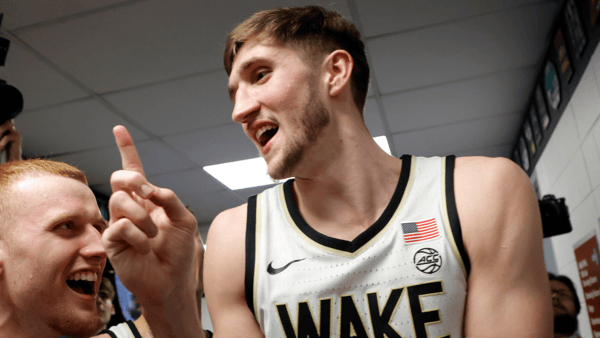
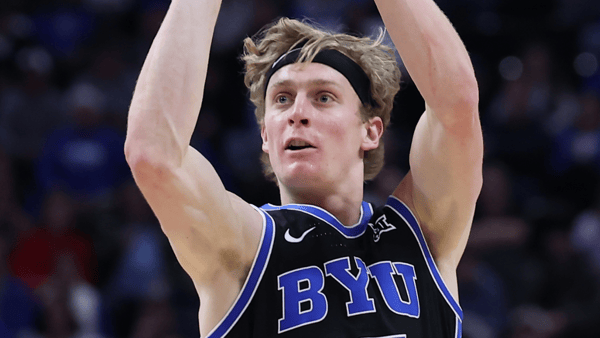
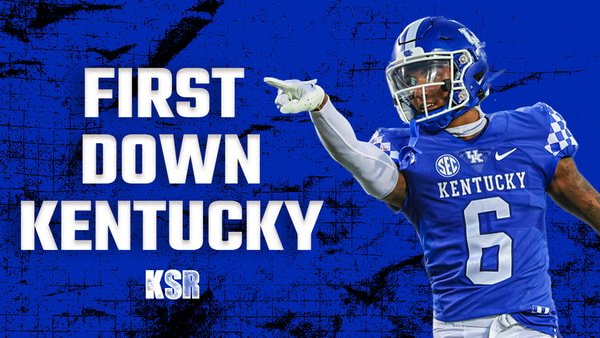
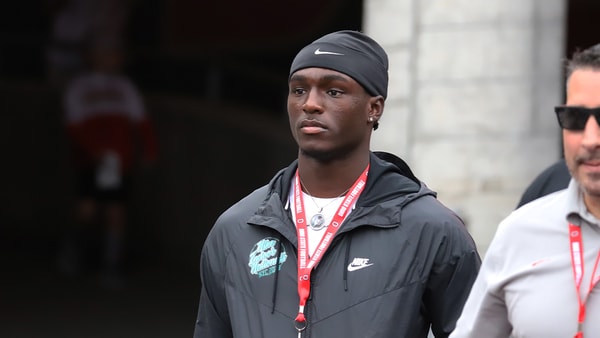
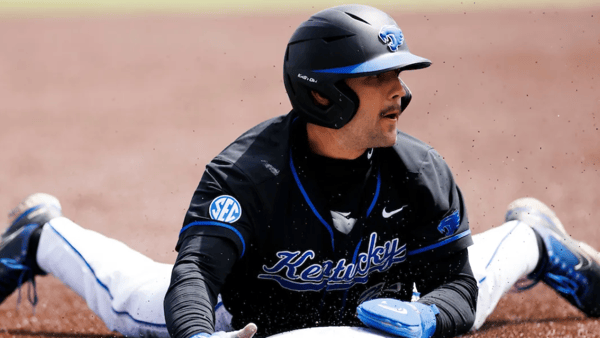
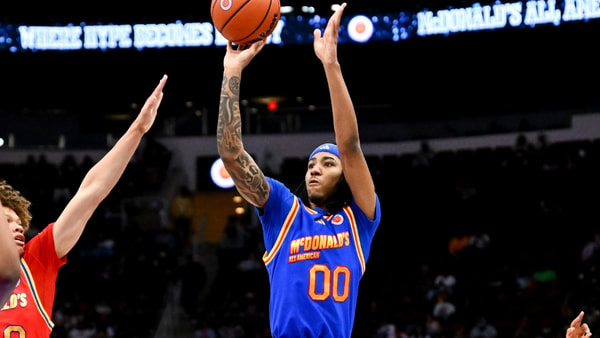
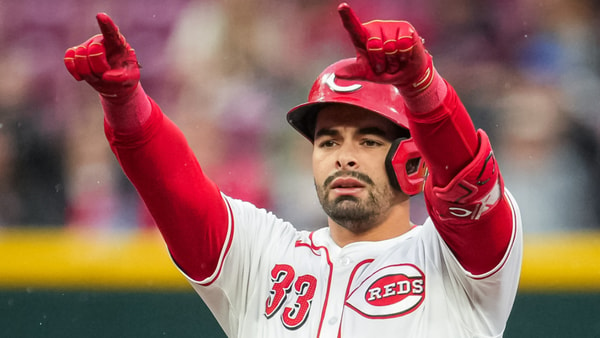
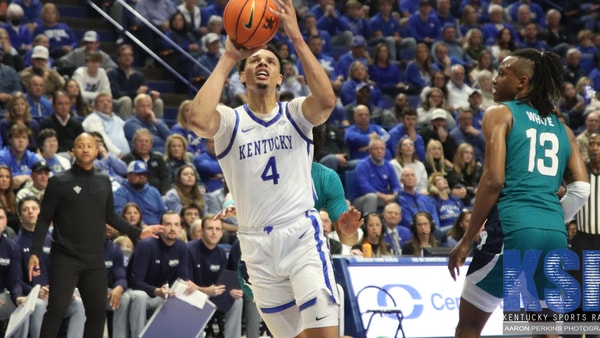
Discuss This Article
Comments have moved.
Join the conversation and talk about this article and all things Kentucky Sports in the new KSR Message Board.
KSBoard